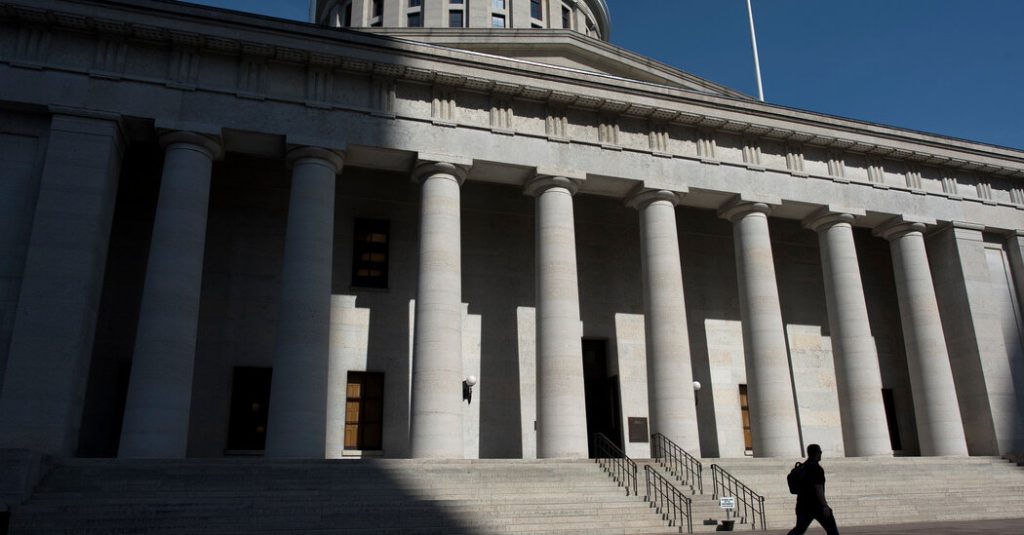Democratic Party leaders announced on Tuesday that they would nominate President Biden for a second term through a virtual roll call of delegates, in order to bypass a glitch in Ohio law that could have kept him off the November ballot in the state. Ohio law required candidates to be certified by Aug. 7, but Biden was not scheduled to be officially nominated until after the Democratic National Convention on Aug. 19. The virtual roll call will be completed before the Ohio deadline. While the Ohio Legislature was meeting in a special session to address the issue, deep divisions among Republicans stalled any action on the matter.
The situation in Ohio highlighted the dysfunction and partisan rancor within the ruling Republican party, which holds supermajorities in both chambers of the Legislature. In previous election years, the Ohio Legislature approved one-time exceptions to the Aug. 7 deadline to accommodate the political parties’ convention schedules. However, this year, Ohio Republicans failed to take action on the ballot issue, despite warnings from the state’s Republican secretary of state. Deep divisions among hard-line and moderate Republicans in the Ohio House, as well as a political rivalry between Republicans in the House and Senate, have contributed to the legislative gridlock.
Frustrated by the lack of action from the Ohio Legislature, Governor Mike DeWine, also a Republican, called the legislators to a special session to address the ballot problem. However, despite previous instances of easily resolving similar issues involving presidential candidates, the Ohio Legislature struggled to come to a consensus this time around. Democrats criticized the Republicans for their inaction, with the chairman of the Democratic National Committee, Jaime Harrison, denouncing the failure of Republicans to act when it was needed. Democrats took matters into their own hands to ensure that Biden would be on the ballot in Ohio and all 50 states.
The early roll call nomination for Biden is not a new solution, as Democrats also held a remote vote for his nomination in 2020 during the Covid-19 pandemic. The lack of action by Ohio Republicans in addressing the ballot issue contrasts with the unanimous action taken by Alabama legislators to fix a similar problem earlier in the year. The dysfunction within the Ohio Legislature was evident in the low number of bills passed during the 2023 session, with only 16 bills approved, the lowest number since at least the Eisenhower administration in the 1950s. The legislative gridlock in Ohio has been ongoing for well over a year, with deep divisions among Republicans hindering the passage of key legislation.
In light of the partisan infighting and legislative dysfunction within the Ohio Legislature, Democratic Party leaders opted for a virtual roll call of delegates to formally nominate President Biden for a second term. Despite the traditional Aug. 7 deadline for candidates to be certified, the virtual roll call will ensure that Biden is on the ballot in Ohio and all 50 states. The failure of Ohio Republicans to address the ballot issue showcases the deep divisions within the ruling party and the challenges of legislating in a hyper-political environment. Democrats took the initiative to push forward with Biden’s nomination, highlighting their determination to overcome obstacles and ensure that their candidate is on the ballot come November.


